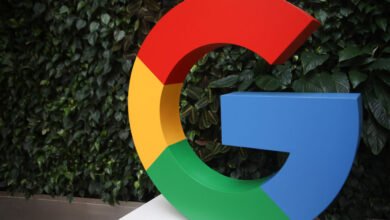ChatGPT, LLM Referrals Underperform Google Search: Study

▼ Summary
– ChatGPT referral traffic underperforms Google search, email, and affiliate links in both conversion rate and revenue per session.
– The analysis of 973 ecommerce sites found ChatGPT accounted for only about 0.2% of total sessions, far less than Google organic search.
– ChatGPT referrals showed lower bounce rates than most channels but had lower session depth and conversion rates compared to organic and paid search.
– Despite improving conversion and revenue trends, ChatGPT is not projected to match organic search performance within the next year.
– Researchers suggest early-stage user trust issues may cause shoppers to verify purchases elsewhere, limiting ChatGPT’s visible sales impact.
A recent analysis of nearly a thousand ecommerce platforms reveals that referral traffic from ChatGPT and similar large language models significantly underperforms compared to Google search, email marketing, and affiliate links in both conversion rates and revenue generation. While AI search tools are beginning to direct noticeable visitor numbers to online stores, they have not yet proven effective at driving actual sales. For the immediate future, Google, through both paid and organic search results, continues to deliver superior commercial outcomes per user session.
The comprehensive study examined twelve months of data from August 2024 to July 2025, covering 973 ecommerce websites with collective revenues reaching $20 billion. Within this dataset, traffic originating from ChatGPT accounted for roughly 0.2% of all sessions, a volume approximately two hundred times smaller than that coming from organic Google search. Notably, over 90% of all ecommerce traffic from large language models was attributed to ChatGPT, with other platforms like Perplexity, Gemini, and Copilot contributing negligible amounts.
When evaluating performance metrics, both affiliate links and organic search demonstrated substantially higher conversion rates than ChatGPT referrals, affiliate conversions were 86% higher, while organic search conversions exceeded ChatGPT’s rate by 13%. Among the channels studied, only paid social media advertising converted worse than ChatGPT. In terms of revenue per session, ChatGPT referrals lagged behind both paid and organic search but managed to outperform paid social campaigns. Interestingly, while bounce rates for ChatGPT-originated traffic were lower than most other channels, organic and paid search still achieved the best bounce rate figures. Session depth, indicating how thoroughly users explored sites, was generally shallower for ChatGPT visitors compared to other traffic sources.
Over the observation period, researchers noted a positive trend for ChatGPT with gradual improvements in both conversion rates and revenue per session, though these gains coincided with a decline in average order values. Model-based projections indicate continued incremental improvements for AI-generated referrals but suggest they are unlikely to reach parity with organic search performance within the coming year.
Industry analysts propose that early-stage user behavior patterns may explain these performance gaps. Shoppers arriving via AI assistants often exhibit what researchers call “trust and verification behavior”, they use the AI for initial product discovery but then turn to traditional search engines to confirm details before completing purchases. This habit shifts final conversion credit away from AI platforms under standard last-click attribution models.
It’s important to recognize that these findings reflect current measurement methodologies and the emerging nature of AI search channels. Should ChatGPT and similar systems evolve to reshape customer journeys or enable more direct purchasing pathways, their measurable impact on sales could become more pronounced in future analyses.
The collective evidence from multiple recent studies reinforces this pattern. A separate analysis by SALT.agency found that organic search visitors consistently demonstrated higher engagement levels and were more likely to complete key actions across most industry sectors, with LLM-referred traffic showing stronger performance only in specialized niches like health information and career services. Another investigation by Amsive Digital determined that conversion rates between LLM and organic search traffic showed no statistically significant difference, while also confirming that LLM referrals constituted less than 1% of total website sessions.
The overarching conclusion from current research is clear: while AI-driven referral traffic is growing steadily, it continues to trail traditional search channels in both scale and demonstrated purchase intent. For marketers, this represents both a cautionary finding and a strategic opportunity, the upward trajectory of AI assistants suggests now is the ideal time for testing, learning, and developing effective approaches that will position brands advantageously as LLM-assisted shopping continues to mature.
(Source: Search Engine Land)





